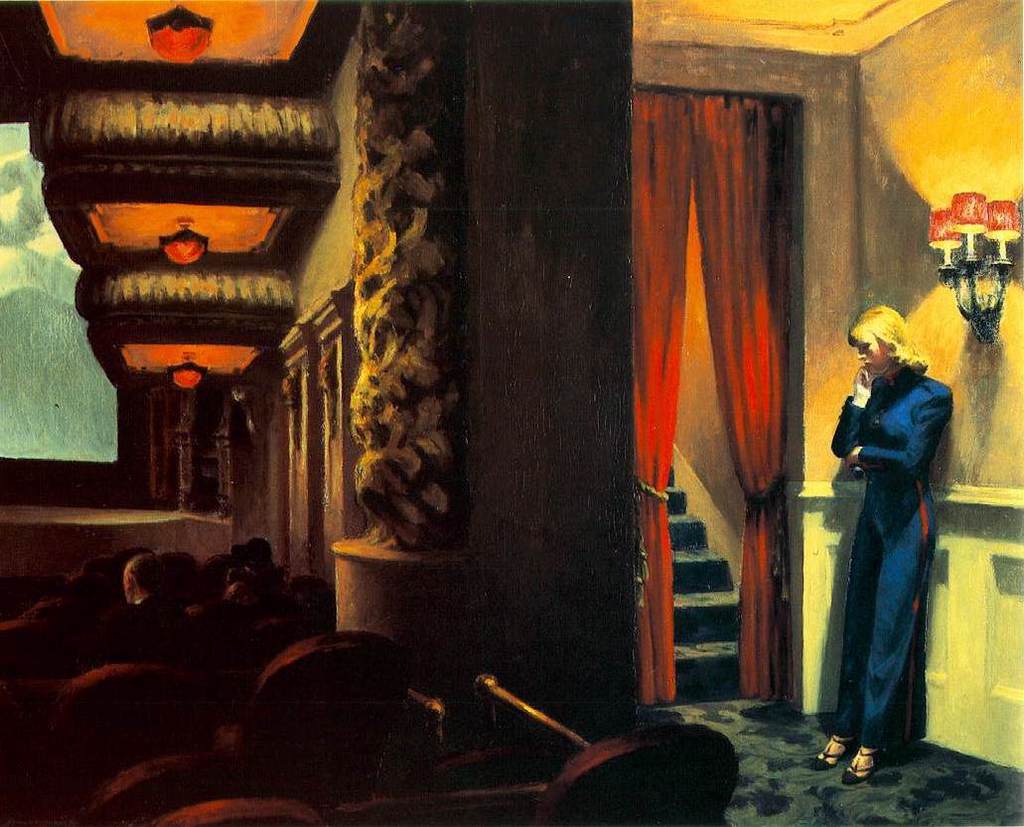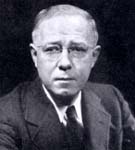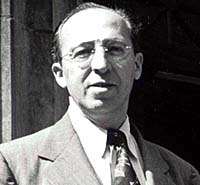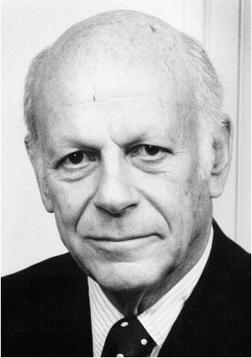Grant Park Orchestra and Chorus serve up adventurous program of 1940s Americana
“There’s a kind of loneliness in American music that’s different from other kinds of loneliness,” Leonard Bernstein once observed. The Pulitzer Prize in music may have been the outward thematic link for the homegrown works presented by Carlos Kalmar and the Grant Park Orchestra and Chorus Friday night at the Harris Theater. But all three works, dating from the 1940s, also have the sense of stoic melancholy and a nostalgic ache for the past that seem ingrained in the national cultural fabric.
The characteristically offbeat and venturesome program of American music—to be repeated Saturday night—offered Copland’s Appalachian Spring alongside two rarities for chorus and orchestra, and is being recorded for release next year on the Cedille label.
Leo Sowerby was born in Grand Rapids, yet spent nearly all of his adult life in Chicago, composing voluminously while serving as organist and choirmaster at St. James Episcopal Church for 45 years. Sowerby completed five symphonies, several concertos, and numerous organ and chamber works. Yet the most substantial part of Sowerby’s oeuvre is his choral music, notably his cantata, The Canticle of the Sun, which won the composer the Pulitzer Prize in 1946.
Sowerby’s setting of Saint Francis’s devotional 13th-century hymn—in Matthew Arnold’s English translation—is cast in a single broad movement of 25 minutes. While Sowerby’s spiritual element is manifest, there’s nothing treacly or sentimental in this strong, purposeful music. Under Kalmar’s firm, incisive direction, the Canticle opens with impassioned sweep in the orchestra and shows Sowerby’s confident handling of orchestra and voices, often drawing a striking organ-like sonority from the instrumental choirs.
Perhaps Sowerby’s Canticle misses that last bit of individuality and distinction yet this is compelling and resourceful music that deserves to be performed more often. Kudos to Grant Park Chorus director Christopher Bell for his timely excavation of this neglected work.
Kalmar drew a powerful performance from the orchestra—perhaps a bit too muscular at times, with the chorus having to compete with the fiery orchestra playing in Sowerby’s climactic passages. Well prepared by Bell, the singers provided glowing, well blended vocalism, assaying the tortuous difficulties of Sowerby’s vocal writing with great skill. Still, just one week into the summer season, the chorus seems to have not yet reached cruising speed, with enunciation less than crisp and words too often unclear, necessitating frequent reference to the text in the program.
Copland’s Appalachian Spring served as the evening’s centerpiece, likely the most popular of all Pulitzer-winning compositions. What a pleasure to hear such a taut and tightly focused performance of this familiar music. If Kalmar’s tempos in the introduction and introspective moments were drawn out a bit too lovingly, they served to bring out the reflective sadness of the music that much more. The folkish dance sections had the requisite lithe buoyancy, and the Grant Park strings handled Copland’s tricky cross-rhythms with fluency and grace. Apart from some tentative oboe playing, the musicians were at their finest, notably Charlene Zimmerman’s characterful clarinet playing and Jeremy Black’s sweet-toned violin solos. Kalmer’s dynamic detailing in the hushed coda shows what a precision machine the Grant Park Orchestra can be in a more congenial indoor setting, though the repeated hacking, sneezing and assorted audience noises will likely mean patching for the recording assembled from these live performances.
The evening led off with William Schuman’s A Free Song. His Secular Cantata No. 2 was the first composition to win the Pulitzer Prize (the music category was added in 1943). Schuman’s setting of Walt Whitman’s Drum Taps deftly undercuts some of the heavy-breathing excess of Whitman’s stanzas, with an astringent harmonic palette balancing the affirmation with a sense of wartime dislocation and stoic regret.
The resounding performance by the Grant Park Orchestra and Chorus gave Schuman’s neglected work powerful advocacy, with Kalmar drawing great urgency and thrust in the fugal writing and a widely terraced array of dynamics and half-tones in the quieter sections.



